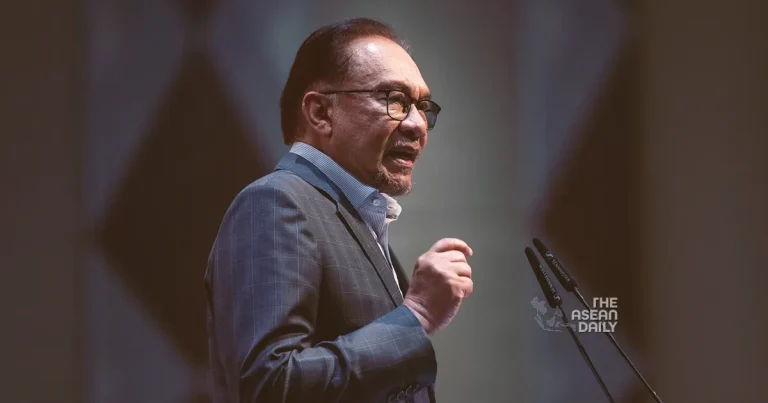6-12-2023 (KUALA LUMPUR) Malaysia’s civil liberties continue to face obstruction, according to a report on rights and freedoms in the Asia-Pacific region released on Wednesday. The People Power Under Attack 2023 report, published by civil rights group Civicus and 20 global partners, highlights the increasing censorship and restrictions under Prime Minister Anwar Ibrahim’s one-year administration.
The report cites numerous examples of government censorship, including the closure of news portals and seizures of books. In June 2023, the news portal MalaysiaNow became inaccessible to some users and was blocked by certain internet service providers. In August 2023, the government blocked internet users from accessing another news site, UtusanTV.com, as well as the news website TV Pertiwi.
MalaysiaNow, which faced financial difficulties and terminated its staff in October, was closely associated with the opposition Perikatan Nasional coalition. Meanwhile, TV Pertiwi had published critical reports about the government. The motive behind blocking UtusanTV remains unclear.
Civicus has been monitoring and publishing reports since 2017 and categorizes countries into five groups based on freedoms of association, peaceful assembly, expression, and the state’s duty to protect those fundamental freedoms. Malaysia, along with Indonesia and Singapore, falls into the “obstructed” category. Thailand, the Philippines, and Cambodia fare even worse, categorized as “repressed.” Vietnam, Laos, Myanmar, and Hong Kong are rated as “closed,” indicating the most severe restrictions. Only Timor Leste in Southeast Asia has made progress, moving from the “obstructed” category to “narrowed,” on par with Australia and South Korea.
Josef Benedict, Civicus Monitor’s Asia-Pacific researcher, stated, “But overall the trend is negative. More Asia-Pacific governments cracked down on citizens’ rights in 2023 than allowed free civic space.”
Despite Prime Minister Anwar’s call for a measured approach to implementing his reform agenda, the report reveals that his government continues to employ restrictive laws to criminalize expression. The Printing Presses and Publications Act 1984, for instance, has been used to raid bookstores and seize books critical of the government, including titles on Karl Marx and communism, a poetry book on masturbation, and others. The report also highlights the seizure of over 100 colorful watches from the Swiss watchmaker Swatch, under the pretext of propagating same-sex relations, which is a criminal offense in Malaysia. This incident garnered global attention and led to the Swiss company suing the government to reclaim their merchandise.
Anwar’s reformist and plural Pakatan Harapan coalition came into power in November 2022 but has yet to address controversial laws such as the Communication and Multimedia Act 1998 and the Sedition Act, which have been used to silence political opponents. During the lead-up to the 2020 elections, the coalition promised to review and repeal these contentious laws in their manifesto.
However, Anwar has expressed caution about making rapid reforms without considering public sentiment. In a recent interview with local TV station TV3, he emphasized the need for wise implementation of reforms to avoid destabilizing the system. Anwar referred to the hasty ratification of internationally binding treaties, such as the Rome Statute and ICERD (International Convention on the Elimination of All Forms of Racial Discrimination), by his predecessor’s administration in 2018, which he deemed a “disaster.” He argued that these decisions were not adequately explained to the public or negotiated with the Conference of Rulers, comprising the country’s nine Malay sultans and other civilian heads of states.
Critics argue that by deprioritizing cherished reforms, Anwar risks undermining the credibility of his own Reformasi (reform) movement and portraying it as mere lip service to gain power.
In the TV3 interview, the prime minister also pledged to prioritize strengthening the Malaysian economy, given the ongoing political crisis and the aftermath of the Covid-19 pandemic. He emphasized the importance of ensuring the comfort and well-being of the people, particularly farmers, fishermen, and the working class, rather than focusing solely on the ministers and leaders.




